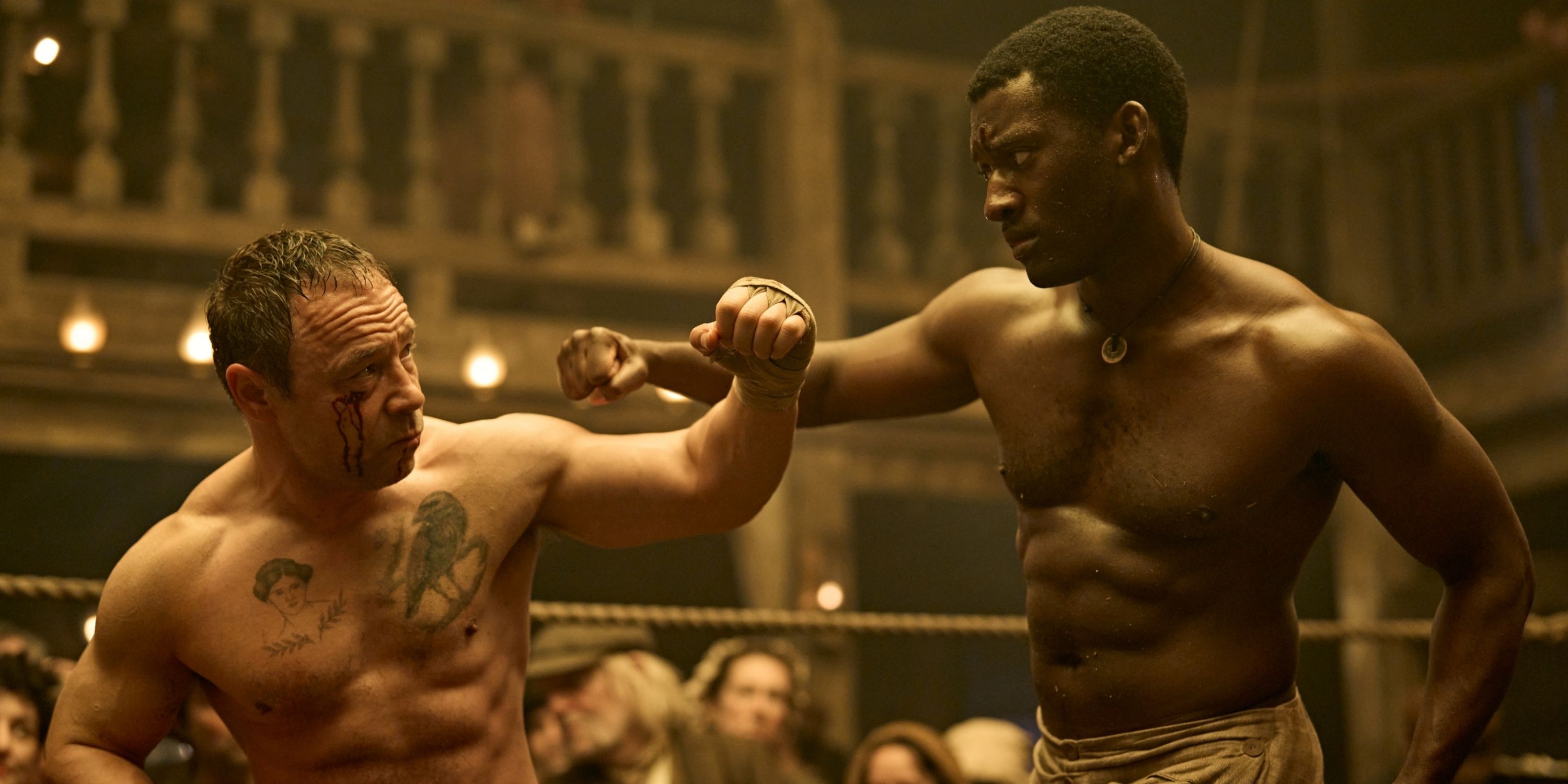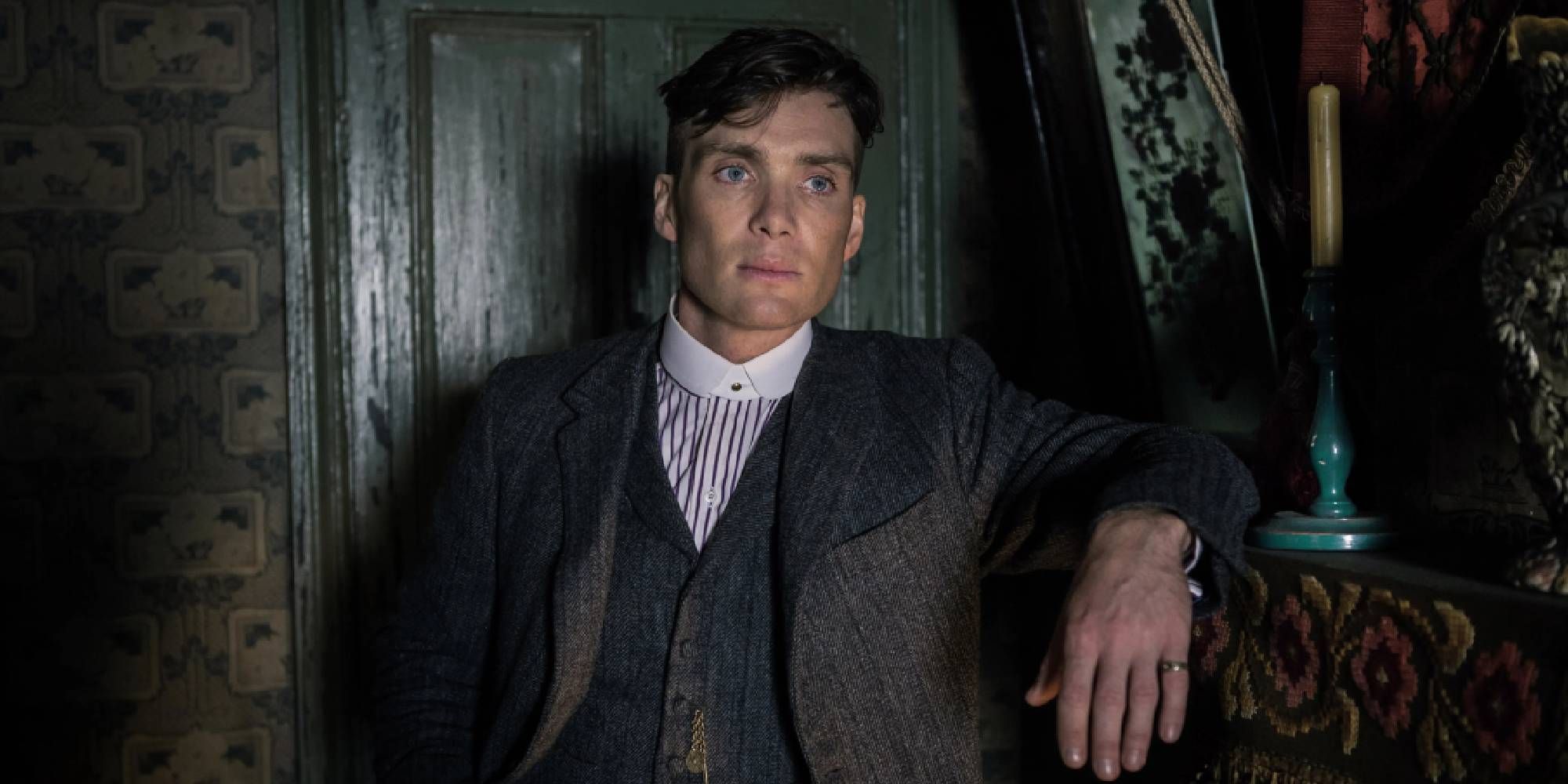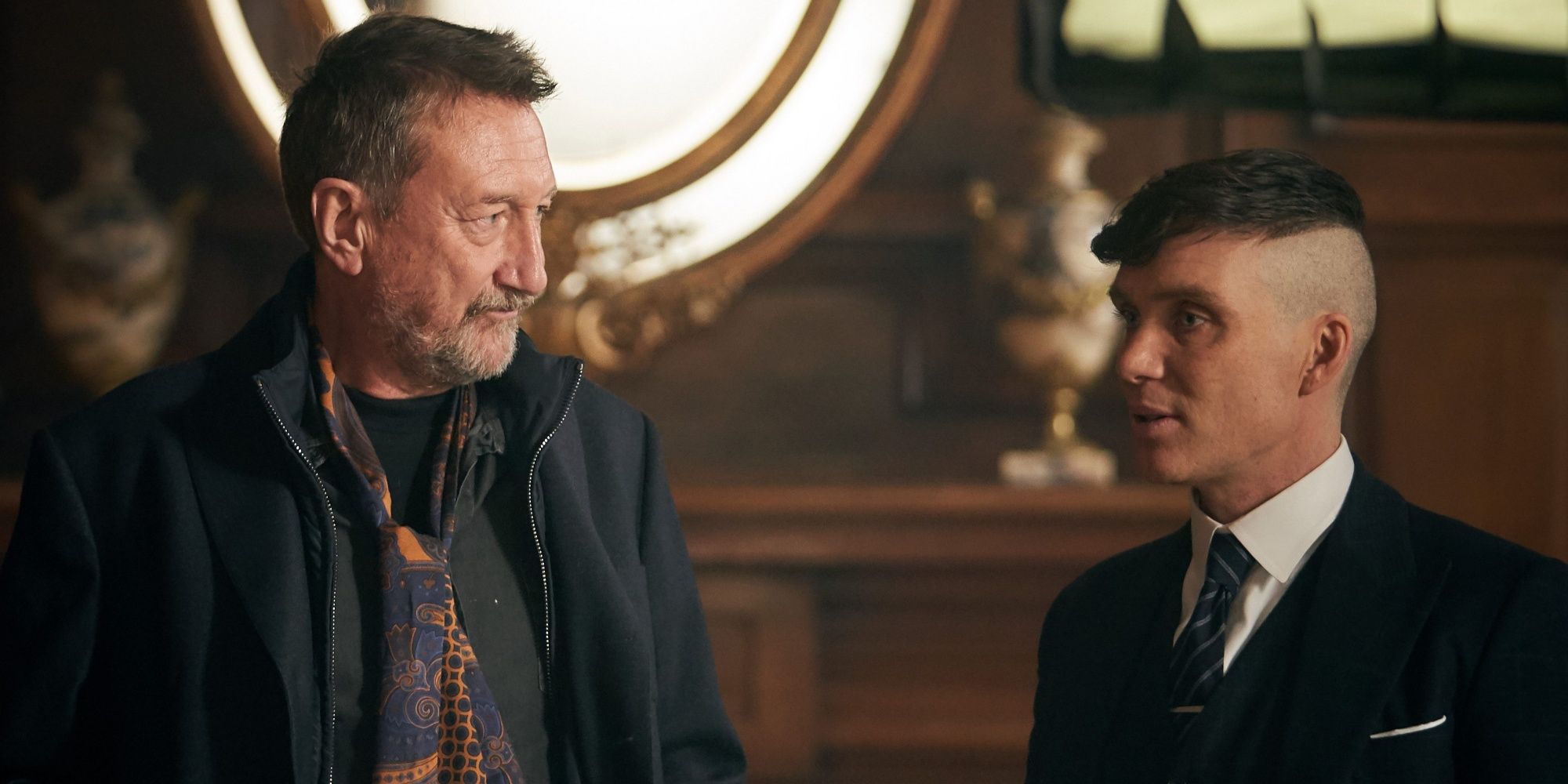‘A Thousand Blows’ Creator Steven Knight Teases an Epic Season 2: “The Stakes Are Much Higher”
[Editor’s note: The following contains some spoilers for A Thousand Blows.]
Summary
- Creator Steven Knight’s Hulu series ‘A Thousand Blows’ follows Hezekiah Mosco and Sugar Goodson in London’s illegal boxing scene in the 1880s.
- The story weaves ambition, a gritty underworld, and character intersections that go beyond the ring.
- Knight discusses multi-season planning, real-life inspirations, Stephen Graham’s involvement, and higher stakes in Season 2.
From creator Steven Knight (Peaky Blinders), the Hulu series A Thousand Blows is inspired by the true-life stories of Hezekiah Moscow (Malachi Kirby), a young man from Jamaica who finds himself in the East End of London in the 1880s, Sugar Goodson (Stephen Graham), the menacing boxer determined to destroy his ambitions in the ring, and the infamous Queen of the Forty Elephants Mary Carr (Erin Doherty). Their individual stories are fascinating and compelling, but intertwined within the criminal underworld of the visceral bare-knuckle boxing scene, ambition can be a dangerous thing.
During this one-on-one interview with Collider, Knight discussed knowing from the beginning that this series would go for more than one season, why he had to approach Season 1 and Season 2 as one 12-episode season, using real-life characters to tell a fictionalized story, forming Sugar for and with Graham, and raising the stakes even higher for the second season. He also talked about how satisfied he is with the Peaky Blinders movie, that he always saw Peaky as a long-running story, continuing the TV series after the movie is out, what he’s loved about working and collaborating with Cillian Murphy, and why he doesn’t direct more often.
The Story of ‘A Thousand Blows’ Was Always Too Big for Just One Season
“This is a story that will be told beyond just one season, or even beyond two seasons.”
Collider: By the time we got to see the first season, you’d already shot a second season and even included some glimpses into what that will be at the end of Season 1. As you were writing and figuring out the story that you could tell over the first season, were you always thinking beyond that? Did you always know that this was too big of a story to tell in one season?
STEVEN KNIGHT: Disney, quite early on, decided that this is a story that will be told beyond just one season, or even beyond two seasons. It was good to know quite early on. It’s a six-episode series. That’s the traditional British length, which I quite like. I had to then think of it as a 12-episode season. There’s not a huge time jump, so I just treated it as that. It was great to have that luxury because the set was built and it was so amazing. It’s a playground, if you’re a writer. You can actually go there and walk to the pub, go in the pub, go up the stairs, look out the window, go to the lodging house. It was all there already. So, in writing two seasons, everything was already built.
When I spoke to Stephen Graham about this series and how it all came about, he said that it was his wife, Hannah Walters, that pursued you. He also told me that he thought there was no chance that you would write it, when she told him that, and she actually had to show him the email saying that you loved the idea before he believed it. When she brought this to you, was it something that you were immediately interested in? Was it something you had to do some digging into, to see if you were interested in doing it? What was the thing that really made you want to tell this story?
KNIGHT: There were a couple of things going on. First of all, if Hannah and Stephen approach you, then the expectation that Stephen and Hannah will be involved is a huge incentive to look at it. And when I did look at it, it was a true story of someone called Hezekiah Moscow, which you can’t make up, who comes to 1880s London from Jamaica with an ambition to be a lion tamer. Truth and reality are always far more wonderful and surprising and creative than anything you could do. So, I did some research into Hezekiah Moscow. There’s not a lot known about him, but the stepping stones that are there were so fascinating. The fact that it was at a time when boxing itself was changing, and the working class in the East End were fighting with no gloves, while in the West End people were fighting with gloves. You had the whole class thing going on. Previous to that, for a long time, I’d wanted to tell the Forty Elephants story, which I’d come across when I was researching Peaky [Blinders]. It was a gang of women. There were always 40 of them. They always had a queen in charge, and it was Mary Carr who was the queen. They would go to Harrods and Selfridges and cause chaos, steal so many clothes, and put so many coats on that, when they left, they looked like elephants, so they were called the Forty Elephants. Because they were all in London at the same time, what I thought was, “Wouldn’t it be interesting to imagine that Mary Carr and Hezekiah met?” There’s no proof that they didn’t, so we could go there. What would happen if they met? That’s what this story is.
Related
Graham also talks about the experience of walking into a world he was already such a fun of and working with Cillan Murphy in ‘Peaky Blinders.’
You’re telling a story set in a real time in history, but there isn’t a specific story that everybody knows, so they can’t judge you for getting it wrong. Does that give you a sense of freedom in the story you’re telling?
KNIGHT: Yeah. When it’s fiction, you can’t be wrong, and you can’t be right. The stuff that I’ve used is the limited amount about Hezekiah and his fights. There are all these accounts of the fight and whether he won or lost, and he usually won, and the reaction of people to him. There are these really quite flowery descriptions of fights that the newspapers and magazines used to do in those times. They were very well-written descriptions of the whole thing, with the crowd and the fights. You have that as a stepping stone. And then, with the Forty Elephants, you’d get horrified newspaper reports about what they’d done with brilliant sketches of what it must have looked like and also court case transcripts. There are word-for-word accounts of people from the Forty Elephants explaining what they did, giving sometimes hilarious, tongue-in-cheek accounts of what they were doing. You could really get the humor and the detached arrogance of the whole thing. It was so beautiful. You could really get into the reality of the characters, and then you could also start playing around.
Once you decided to write this, you wrote Sugar for Stephen Graham. How did that influence the character for you? What did you know that he would bring to the role that you could really incorporate into that character?
KNIGHT: The most tangible thing about that is that I didn’t introduce the character until quite late. If you build someone up like that and they don’t deliver, you’re in trouble. But I knew he was going to deliver. He was away for six months, making himself look the way he looked, and I know what he can do as an actor. So, when you finally see his back for the first time, you know that you’re in for a real impactful performance, and that’s what he always delivers. It just gives you reassurance that you can confidently hold back a bit.
The Characters of ‘A Thousand Blows’ Will Be in Much More Jeopardy in Season 2
“It goes to some great places.”
What would you say to tease Season 2?
KNIGHT: The characters have earned a certain place in their own worlds by doing what they’ve done. They’ve made a lot of mistakes, but they’ve gotten there. In Season 2, the stakes are much higher. It’s the same characters on a continuation of the journey, but now the journey has so much more jeopardy in it. If anything, the engine of it and the energy of it cranks up quite a lot. I can’t tell you where it goes, but it goes to some great places.
You worked with Stephen Graham on the Peaky Blinders TV series, as well as the movie. Did you originally write his character with him in mind, or did you write that character and then think of him?
KNIGHT: I’m sure that I wrote it with him in mind because it’s a Liverpool character and he’s originally from Liverpool. He’s very Liverpool, and I was writing something about the Liverpool docks. I immediately thought it would be him, so I was writing for him.
3:26
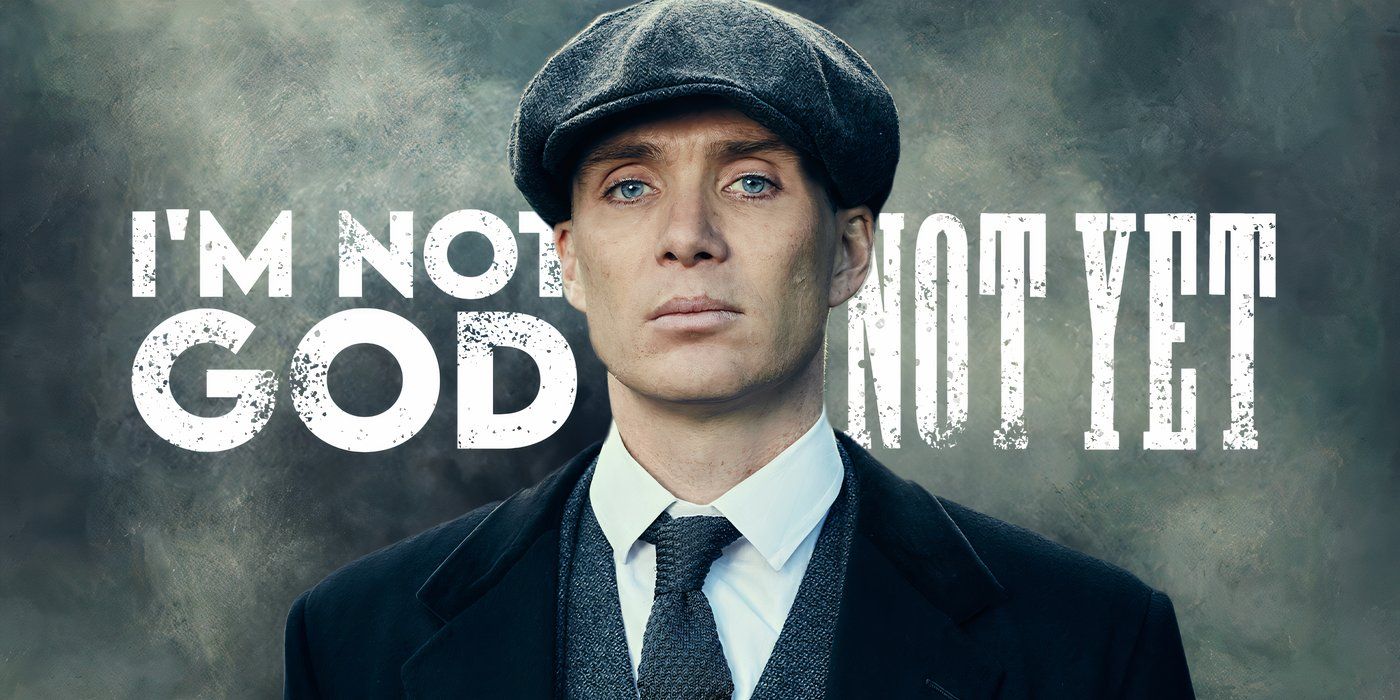
Related
Do you feel like you got to do everything with the Peaky Blinders movie that you wanted to do with it?
KNIGHT: I’m a great believer in what happens, happens for a reason. I think we got the best British actors that exist into this film, all in one place at the same time. Going through the quite complex assemblies, it’s phenomenally good. It really is. I could not be anything other than satisfied with what we’ve got. Hopefully, you will see it quite soon.
Inexperience and Arrogance Helped Creator Steven Knight Strive to Tell Such an Epic Story with ‘Peaky Blinders’
“I think there’s a story to be told that will last a certain amount of time, and you hope that you will be able to tell it.”
It’s incredible that Peaky Blinders not only got as many seasons as it did, but that you also got to do a movie. Had you always thought it would take multiple seasons, and did you think it could then lead to movies?
KNIGHT: Especially with Peaky, I would refer to the Leonard Cohen quote, which says, “All you need to be a writer is arrogance and inexperience.” I was arrogant enough to think, “Yeah, of course, we’re going to do this all the way through to the Second World War.” I actually said, making the first series, “I’m going to take this all the way to the Second World War.” That was the plan. That’s inexperience and arrogance, to think you can do that. But it did, indeed, transpire. Similarly, with A Thousand Blows, I think there’s a story to be told that will last a certain amount of time, and you hope that you will be able to tell it. If you can’t, if it doesn’t work and people don’t like it, what can you do? What’s the worst that can happen?
You’ve already gotten to do a second season of A Thousand Blows. And you’ve said that this Peaky Blinders movie won’t be the end. Do you already have another story for another Peaky Blinders movie?
KNIGHT: Yeah, but not for a movie. We will continue the TV life of Peaky, after the movie.
What do you love about collaborating with Stephen Graham and writing for him? What is it about him that keeps you working with him?
KNIGHT: If you’re a writer, you want the best possible people to execute what you do. And not only execute it but enhance it and add to it and make it better. So, whenever you’ve got Cillian [Murphy] or Tom Hardy or Stephen Graham, or all of these people, whenever they say yes to something, it’s a great triumph. And then, if you can hook them in, it becomes part of a world and a collaboration of people who like to work together. Once you get that going, that’s great. They spin and they spin and they spin, and then they’re gone and somebody goes away. These things happen throughout the history of film and television. While it’s spinning, you’ve got to do as much as you can of it.
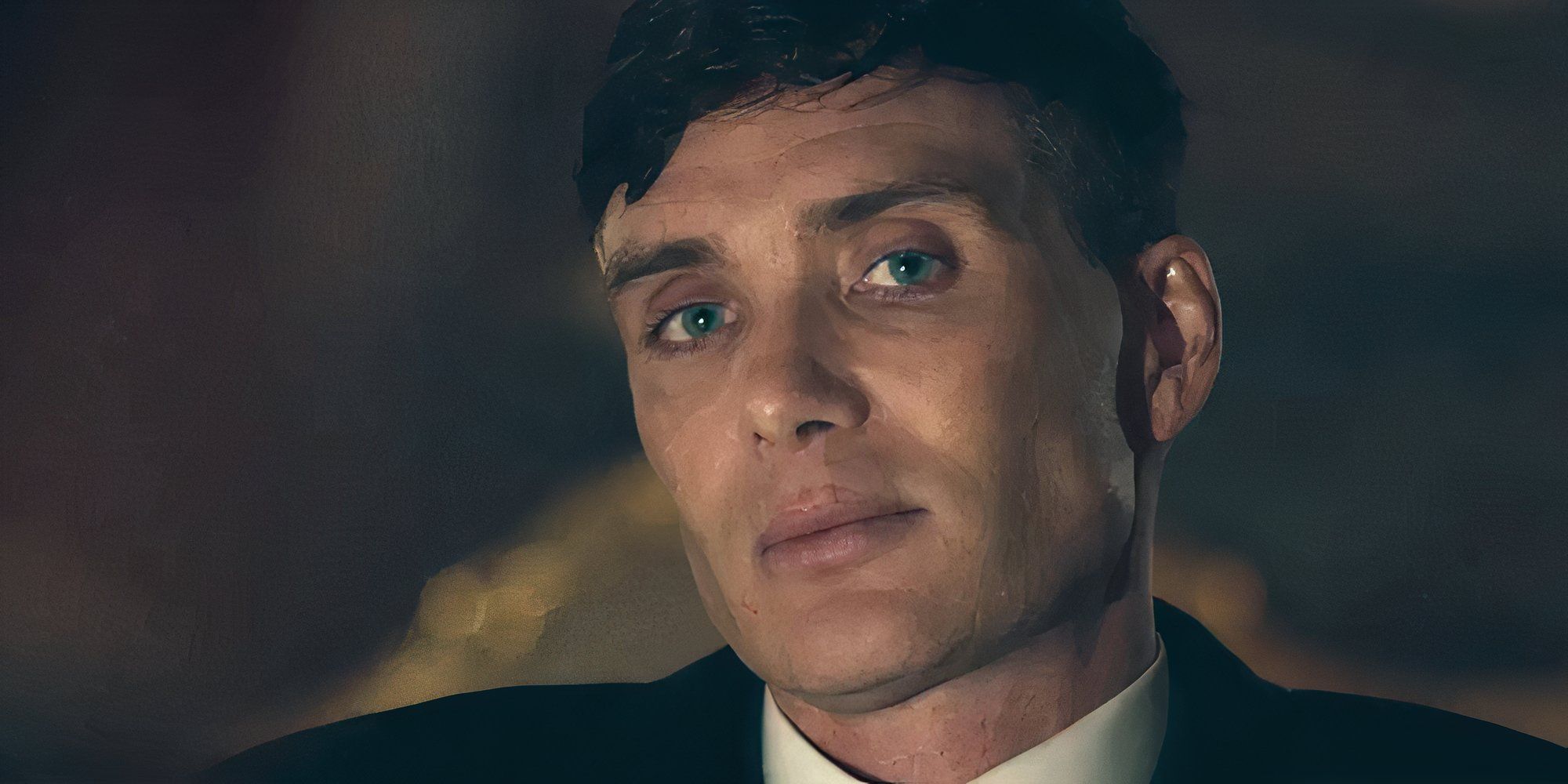
Related
The New ‘Peaky Blinders’ Series Gets a Major Update Three Years After the Final Season
Cillian Murphy would be expected to return.
Cillian Murphy had already done some really interesting projects before he started doing Peaky Blinders, but the series really definitely brought his career to another level. What have you loved about seeing his career evolve and develop the way that it has, along with what he’s brought to your work?
KNIGHT: It’s great because he hasn’t changed at all, and I never thought he would. The person that I met at the very beginning of Peaky was very straightforward, very human, very dismissive of all the stuff that people can fall foul of. When he was winning all the awards last year, pretty much every time, he would say, “I can’t wait to get on the Peaky set.” We were still doing this thing and nothing was changing. I wouldn’t expect anything else. When Cillian is on the set, and it’s the same with Stephen, what happens is that you get somebody who sets the standard, so everybody’s got to turn up on time, everybody’s got to turn up knowing their lines, everybody’s got to bring their best performance. There’s no playing around. When you get an actor like that, it changes the whole nature of the production.
You create such interesting characters for women. Whether it’s Mary Carr and what we see of that character in A Thousand Blows, or the women in Peaky Blinders, or Elisabeth Moss’ character in The Veil. Have you thought about a second season of The Veil? Do you feel like there’s still more of that story to tell?
KNIGHT: Yeah. I’m ready and there are conversations happening. Apparently, Obama loved The Veil, or so I hear. That, for me, is fantastic. That’s a real honor. Who knows? I would love to do it. Elisabeth Moss is similar to the actors we’ve been talking about. She just brings this certain quality to whatever she does.
It felt the same way watching what Erin Doherty brought to Mary Carr.
KNIGHT: Yes, exactly. It’s great when an actor really grabs the role and it becomes ridiculous to think of anybody else doing it.
Directing Is Brutally Hard, Which Is Why Steven Knight Doesn’t Do It More Often
“Physically, it’s hard. Technically, it’s hard. Socially, it’s hard.”
You’ve done work as a director, but you don’t seem to direct episodes of the TV shows you’re involved with. Why is that? Is that a deliberate decision?
KNIGHT: It is. Directing is so hard. I’ve got endless admiration for directors because the work they do is proper work. I have a cup of coffee and sit at my keyboard and do my stuff and pat myself on the back. To be a director, which I’ve done, is brutally hard. Physically, it’s hard. Technically, it’s hard. Socially, it’s hard. You have to devote a whole year to it. I don’t think of myself as a director. I’m a writer, definitely. But sometimes if I write something that no one else will direct, then I have to do it myself because no one else can do it. So, I will do other stuff. But television, that really is a commitment. If you’re going to do it, you can’t really just do one. You have to do at least three. Six is probably better. That’s two years of your life. I’ve got so much other stuff to write that I can’t really do that.
A Thousand Blows is available to stream on Hulu. Check out the trailer:



